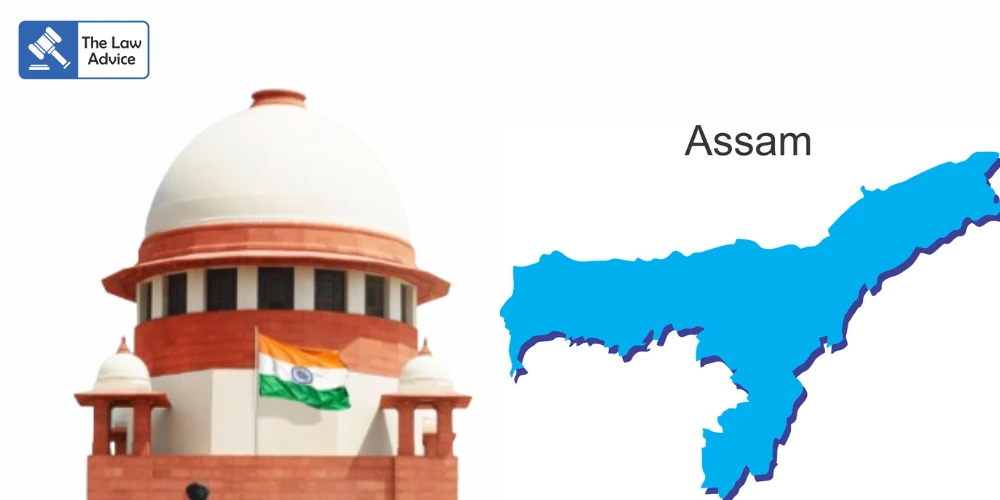The Supreme Court of India has directed that status quo be maintained with respect to the ongoing eviction and demolition operations in Uriamghat and adjoining villages of Golaghat District, Assam. The interim relief was granted while the Court issued notice on a batch of special leave petitions challenging the eviction drive and the Gauhati High Court’s refusal to grant protection to the affected residents.
A bench comprising Justice P.S. Narasimha and Justice Atul S. Chandurkar passed the order after hearing submissions made on behalf of the petitioners, who claimed to be long-settled inhabitants of the disputed villages.
The eviction proceedings were initiated by the State authorities in July 2025, following the issuance of notices under the Assam Forest Regulation, 1891 (as amended). The notices identified the petitioners’ villages as falling within the Doyang and South Nambar Reserved Forests, and directed them to vacate the land within seven days.
Aggrieved, the villagers approached the Gauhati High Court challenging the eviction. However, both the Single Judge and the Division Bench refused relief, holding that the petitioners were unauthorized occupants/trespassers in forest land and that no vested rights could accrue in their favour.
In their appeal before the apex court, the petitioners have argued that:
• They have been in continuous and uninterrupted occupation for over seven decades, with recognition from the State in the form of ration cards, electricity connections, voter ID enrolments, and other civic amenities.
• The eviction was carried out without due process, ignoring statutory safeguards under the Forest Rights Act, 2006 and the Assam Forest Regulation, 1891.
• No proper rehabilitation or resettlement inquiry was conducted as required under the Right to Fair Compensation and Transparency in Land Acquisition, Rehabilitation and Resettlement Act, 2013 and the Assam Rules, 2015.
• The action amounts to a violation of their fundamental rights under Articles 14, 19, 21, 25, and 300-A of the Constitution of India.
The petitioners have also relied upon the Supreme Court’s ruling in In Re: Directions in the matter of demolition of structures, which mandated prior notice, opportunity of hearing, and proper rehabilitation before any large-scale demolition or eviction can be carried out.
Taking note of the arguments, the bench ordered status quo, thereby restraining further eviction or demolition until the matter is heard in detail. The case raises crucial questions concerning the balance between forest conservation laws and the rights of long-settled forest dwellers, particularly where State recognition of residence exists.
The petitioners were represented by Senior Advocates Chander Uday Singh and Rauf Rahim, along with Advocate-on-Record Adeel Ahmed and Advocate Abdur Razzaq.
Case Details
• Case Title: Abdul Khalek and Ors. v. State of Assam and Ors.
• *SLP(C) Nos. 23647–23648 of 2025
The matter will next be taken up for a detailed hearing.
